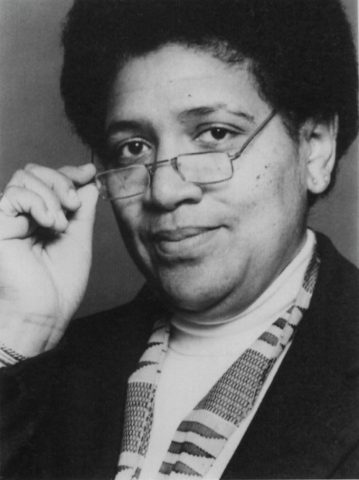Lorde, a mother, teacher, activist, lesbian, feminist, socialist and poet, died of breast cancer in 1992, but her ideas led to canonical works in feminist theory and are collected as essays and speeches in Sister Outsider, first published in 1984 and now re-released from Crossing Press ($16.95). Twenty-three years later, her insights into racism, sexism and classism are still relevant and her criticisms of U.S. government are still alarmingly apt.
Much of Sister’s content focuses foremost on the struggles of marginalized persons—Blacks, feminists, lesbians, and women in general. Those struggles, and the position they put us in, are summated by the title of the book. The “Sister Outsider” is a woman who exists at once part of a community but is also separate, on the fringe. Lorde writes to inspire us to break down the barriers that divide our communities, as in “The Uses of Anger: Women Responding to Racism,” where Lorde describes Black women’s callousness toward other Black women as self-defeating; by tearing down each other, we do the work of those who would tear us down otherwise.
In “Uses of the Erotic: The Erotic as Power,” one of her most well-known essays, Lorde encourages us to reclaim from the institutions that oppress us and reclaim the “life force of women … that creative energy empowered … our history, our dancing, our loving, our work, our lives.” In “Man Child: A Black Feminist’s Response” Lorde handles motherhood from the perspective of a woman-identified woman. She sagely reminds us that the boys we raise “will not grow into women,” and that is okay.
Her words were radical decades ago. Today they still stand up. Specifically, her treatment of the 1983 U.S. invasion of the tiny Caribbean island Grenada in Sister’s culminating essay “Grenada Revisited: An Interim Report,” bears striking parallels to the contemporary conflict in Iraq. She writes, “with the constant manipulation of the media, many Black Americans are honestly confused, defending ‘our’ invasion of Black Grenada under a mistaken mirage of patriotism.”
Beautiful in its language and message, Sister is dense with theory, and longer passages take some mining to unearth rewarding nuggets of truth. Read with a pencil.



What Do You Think?